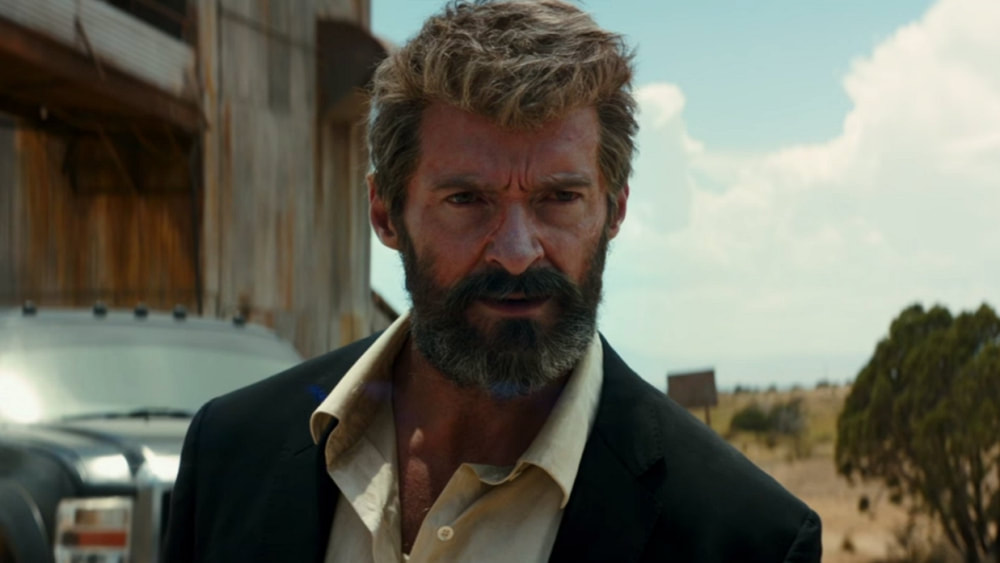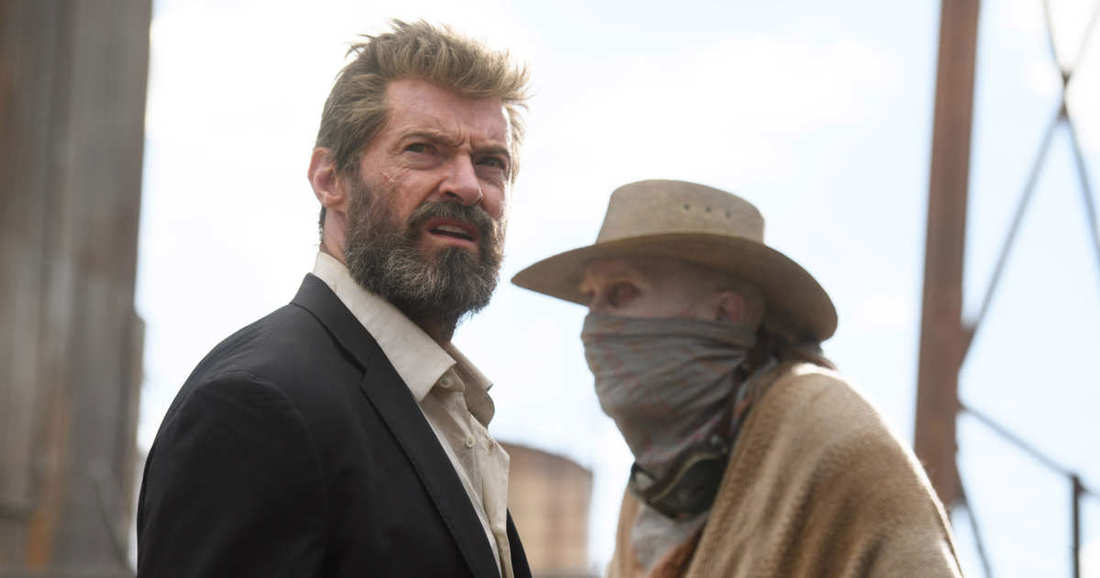Many aspects of Logan are interchangable with the other installments. The Wolverine movies are, as a rule, bloodier than the X-Men movies. Logan takes this to the extreme, as if the writers got paid extra for brainstorming creative ways for characters to die. (This does lead to a few beautiful moments, but mostly, it’s overkill). Logan has an excess of side characters, but, unlike the prior movies, uses them well. I was most impressed by Stephen Merchant’s Caliban, an albino mutant whose mutation allows him to sense and locate other mutants. The makeup effects and costuming for his character really stood out as excellent. Merchant is somewhat familiar to a niche of American audiences – Big Bang Theory watchers – since he guest-starred on a season of the popular CBS show as Amy Farrah Fowler’s (the phenomenally funny Mayim Bialik) new boyfriend, Dave, after her brief split with Sheldon Cooper (Jim Parsons). However, since his character only had a 3-episode arc, it was not really a good example of his capabilities. After Logan, I hope Merchant has more success in American cinema; he reminds me of a British Alan Tudyk.
|
Wolverine (Hugh Jackman) ponders a difficult situation in Mexico (Logan - Mangold, 2017) by Megan Hess Like many fans of the X-Men cinematic universe, I was distressed when I first heard Hugh Jackman was wrapping up his portrayal of the hard-hearted, cigar-smoking, Canadian mutant Logan James Howlett (better known as Wolverine) with one final film. Jackman’s Wolverine is comparable to Heath Ledger’s Joker in how he took a rabidly popular fan-favorite character – one of the most frustrating, complex, and interesting original members of the X-Men – and made him come alive like the character stepped out of a comic book and onto the screen, but still kept the performance completely his own. With his good looks and raw talent, Jackman drove the franchise so much that he eventually got to have his own spinoff movies. The poor quality of the two films that precede Logan - X-Men Origins: Wolverine (Hood, 2009) and The Wolverine (Mangold, 2013) – is part of what makes Logan so incredible. X-Men Origins: Wolverine is quite possibly the worst film Jackman has ever done. Knowing Game of Thrones showrunner David Benioff helped write the screenplay makes me weep. This pustule of a film also features Ryan Reynolds as Wade Wilson (Deadpool); the fight scene between him and Jackman on top of a nuclear reactor is by far the most painful and ridiculous moment of a movie comprised of many painful and ridiculous moments strung together. Fortunately, critics were more pleased with The Wolverine than they had been with X-Men Origins: Wolverine, and Logan improved on the formula yet again, bringing it to a perfect close. Many aspects of Logan are interchangable with the other installments. The Wolverine movies are, as a rule, bloodier than the X-Men movies. Logan takes this to the extreme, as if the writers got paid extra for brainstorming creative ways for characters to die. (This does lead to a few beautiful moments, but mostly, it’s overkill). Logan has an excess of side characters, but, unlike the prior movies, uses them well. I was most impressed by Stephen Merchant’s Caliban, an albino mutant whose mutation allows him to sense and locate other mutants. The makeup effects and costuming for his character really stood out as excellent. Merchant is somewhat familiar to a niche of American audiences – Big Bang Theory watchers – since he guest-starred on a season of the popular CBS show as Amy Farrah Fowler’s (the phenomenally funny Mayim Bialik) new boyfriend, Dave, after her brief split with Sheldon Cooper (Jim Parsons). However, since his character only had a 3-episode arc, it was not really a good example of his capabilities. After Logan, I hope Merchant has more success in American cinema; he reminds me of a British Alan Tudyk. Logan and Caliban (Stephen Merchant, right) (Logan - Mangold, 2017) More than its judicious use of side characters, it’s the way Logan brings emotion back into the Wolverine franchise that makes it so stellar. The social-psychological aspect of the X-Men franchise, especially in its best-executed moments – X2 (Singer, 2003), X-Men: First Class (Vaughn, 2011) and X-Men: Days of Future Past (Singer, 2014) for example - is what sets them apart from their competitors. The Wolverine movies always got more wrapped up in the spurting blood and flashing steel claws. As previously mentioned, Logan has those elements in abundance, but also isn’t afraid to get sentimental. Wolverine’s character is known for keeping his friends and emotions at a distance, but, in Logan, he holds both a little closer. The self-sacrificing, parental Logan in this movie isn’t an entirely new character – look at his relationship with Rogue (Anna Paquin) in X-Men (Singer, 2000) X2 (Singer, 2003) and X-Men: Last Stand (Ratner, 2006), and his actions at the end of Last Stand with Jean Grey (Famke Janssen) – but it’s a more direct and nuanced one that drives the movie’s most heart-tugging plot points. Certain moments in Logan are just as sad or sadder than Erik (Michael Fassbender) paralyzing Charles (James McAvoy) in X-Men First Class or when Jean Grey\Dark Phoenix kills Charles Xavier (Patrick Stewart) in Last Stand. Logan is not a movie to watch alone, and I believe it’s not meant to be watched that way. Consider it a wake for the Wolverine franchise, or Jackman at his peak in the role. Logan is a dream end, and other superhero franchises should take note of its success.
Comments are closed.
|
Archives
April 2024
|




 RSS Feed
RSS Feed
